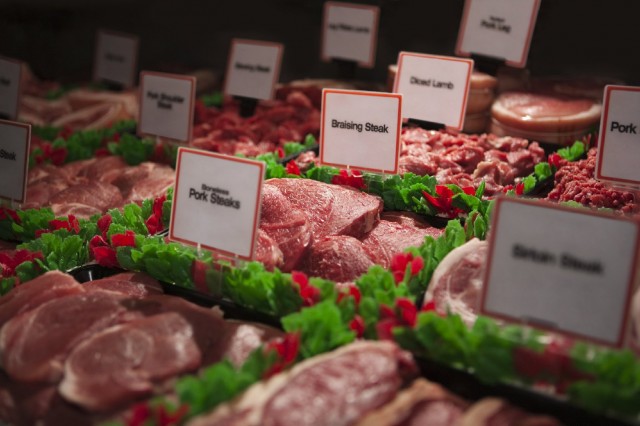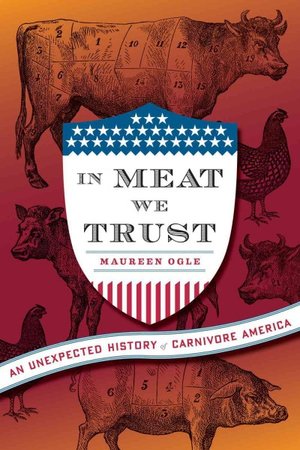
Post by Jeremy Bernfeld, The Salt at NPR Food (12/8/13)
 The meat on your dinner table probably didn't come from a happy little cow that lived a wondrous life out on rolling green hills. It probably also wasn't produced by a robot animal killer hired by an evil cabal of monocle-wearing industrialists.
The meat on your dinner table probably didn't come from a happy little cow that lived a wondrous life out on rolling green hills. It probably also wasn't produced by a robot animal killer hired by an evil cabal of monocle-wearing industrialists.
Truth is, the meat industry is complicated, and it's impossible to understand without a whole lot of context. That's where Maureen Ogle comes in. She's a historian and the author of In Meat We Trust: An Unexpected History of Carnivore America.
Ogle's book examines the pipeline that meat takes today from field to table by trying to understand its roots. She starts all the way back in Colonial America, when settlers found so much available land that they were able to raise livestock they could never have afforded in Europe. Meat, Ogle writes, became a status symbol in early America.
Much has been made of the ugly details of the modern meat industry, from Upton Sinclair's The Jungle to Michael Pollan's Omnivore's Dilemma to various exposes and articles on slaughterhouses. The industry's roots, though, stretch back more than a century, when Americans left their farms for the big cities, leaving a vast urban population with a cash income and a hankering for meat.